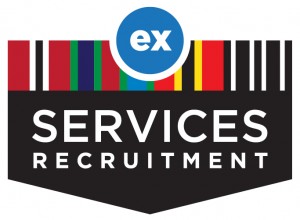Reference Checks - a very important step
So you have successfully passed through all the application hurdles, aced the interviews, and are waiting to hear back from the hiring manager regarding the final decision. This wait seems unbearable at times, and often it’s frustrating to not know what could possibly be taking them so long. You would rather be put out of your agony and simply know the answer whether it’s a yes or a no. However this is a crucial time for the hiring manager, as it is the time where they conduct their reference checks on you. You may have impressed them with your skills in your resume and charmed them with your personality in the interview, but unless your referee can vouch for your work performance, ethic and attitude, the decision is unlikely to swing in your favour.
A good reference check can be the difference between a maybe and a potential so it plays a significant role in the overall hiring decision. The actual reference check is something you have very little control over, and so it can be tough trying to ensure the outcome is positive. There are a number of questions hiring managers ask, but the basic gist of what they are looking for is whether you are a good investment to make. It is a tough decision to hire someone, so employers naturally want to make good choices before they spend time and effort into training you to work for them. Questions around reliability, your attitude towards work, your honesty and integrity, your attendance record, punctuality and your communication skills are standard and act as additional confirmation for the impression you have built up process leading up to this point. However what the hiring manager really wants to know is your ability to perform specific tasks such as particular skills and will ideally want examples. The hiring manger also wants to know how you get along with the supervisors and team and if there have bene any issues. The hiring manager is also likely to confirm why you planning to leave the role in order to verify what you have already told them.
These questions have the power to make or break your chance of getting the role so it is important to ensure that your reference check is positive. The best, and only way to make sure you get a good reference is to simply be a good employee. If your work ethic is strong, your performance will speak for itself. The tiny details such as punctuality, attendance and grooming do matter so strive to always adhere to rules of the company as they contribute to your overall image. Another way to ensure that you get have a good reference check is to leave the company on good terms. Often there are times when you have to leave a job due to grievances, but storming out of a role isn’t going to help your chances of getting another job. A dignified resignation is much more likely to give you a good reference. It is always polite to ask your referee if they are comfortable as vouching for your performance and only put their name forward with their consent. This also allows them to be prepared for any calls they may come and also gives you a chance to check that their contact details are current. Hiring managers do not want to be chasing up hard to reach referees. Another thing to make sure of is that you provide your most recent referees. Hiring managers don’t need your reference from 10 years ago, they just need the most recent, and preferably the most relevant references to your current role. As a general rule, 2/3 references are usually enough and the hiring manager will ask for more if needed.
Reference checks may seem like a formality but in reality it can often the deciding factor between being shortlisted to being employed by the company.



